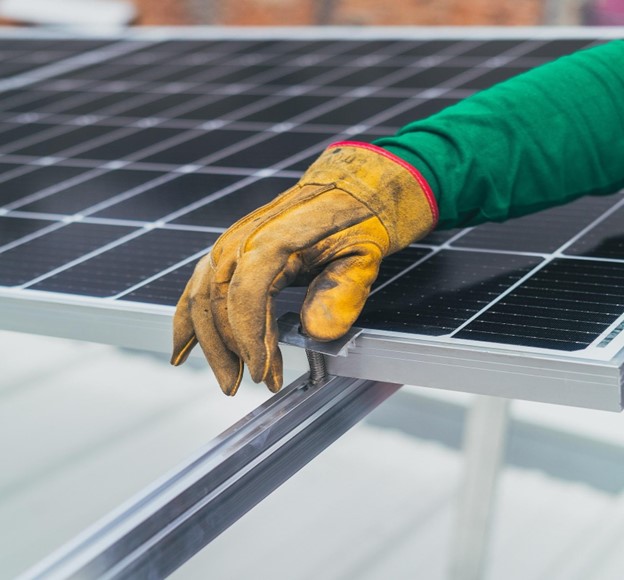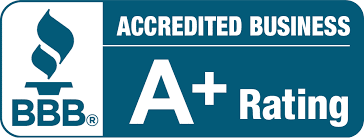Tips to Maximizing Your Solar Investment
As the world trends toward cleaner and more sustainable energy solutions, solar power stands out as a valuable solution. The advantages of solar panels and solar energy are numerous, from reducing carbon emissions to potential cost savings.
Are you a Texan homeowner looking to make a positive impact on the environment while exploring potential financial benefits? If so, understanding how to ensure the longevity and efficiency of your solar panels is crucial.
In this blog post, we’ll look at the importance of maintenance for solar panels, explore their typical lifespan, discuss methods for measuring solar panel efficiency, and provide practical tips on maximizing solar panel efficiency. Let’s get started!
Do Solar Panels Require Maintenance?
While solar panels are renowned for their low maintenance requirements compared to other energy systems, neglecting them can lead to decreased efficiency and a shorter lifespan. Just like any valuable investment, solar panels require regular maintenance to perform optimally and stand the test of time.
Lifespan of Solar Panels
Knowing how long your solar panels will last is vital for calculating the overall return on your investment (ROI). Generally, solar panels have a lifespan of 25 to 30 years or more. This doesn’t mean they will suddenly stop working after three decades, but rather that their efficiency will gradually decline over time.
The advantage of solar panels lies in their durability and reliability. Many panels come with warranties that guarantee their performance for a certain number of years. However, the actual lifespan often exceeds these warranties.
And what can you do to ensure your panels reach their maximum lifespan? You guessed it. Perform proactive, consistent maintenance.
Measuring Solar Panel Efficiency
Measuring the efficiency of your solar panels allows you to gauge how effectively they’re converting sunlight into usable energy. The efficiency of a solar panel is typically represented as a percentage and refers to the amount of sunlight it can convert into electricity.
Newer panels tend to have higher efficiency rates. However, recent advancements in technology have made even older panels quite efficient, too.
Gather the Right Tools
You’ll need a few essential tools to measure solar panel efficiency accurately.
- Multimeter: This device measures the electrical output of your solar panels. It helps you determine the current and voltage they’re generating, which are crucial for calculating efficiency.
- Pyranometer: A pyranometer measures the amount of sunlight hitting the panels.
- Data Logger: A data logger records the electrical output and sunlight data over time. It provides a comprehensive view of your panels’ performance, helping you spot trends and anomalies.
- Weather Station: Monitoring temperature, humidity, and other weather conditions can help explain variations in efficiency.
Know the Efficiency Formula
You can use a simple formula to measure the efficiency of your solar panels.
- Efficiency (%) = (Energy Output / Solar Energy Input) × 100
Energy output is the amount of electricity your panels generate, and solar energy input is the amount of sunlight hitting the panels. By periodically measuring and comparing your panels’ efficiency, you can detect any decline and take appropriate action.
How to Increase Solar Panel Efficiency
Increasing the efficiency of your solar panels maximizes their output and enhances your ROI. Here are some practical steps to make your solar panels more efficient:
- Regular Cleaning: Dust, dirt, bird droppings, and other debris can accumulate on the surface of the panels, blocking sunlight and reducing their efficiency. Cleaning the panels with a soft brush and water can significantly improve their performance. A clean surface allows more sunlight to reach the solar cells, boosting their efficiency.
- Optimal Placement: Install your panels in a location that receives maximum sunlight exposure throughout the day. Shading from trees, buildings, or other obstacles can significantly impact efficiency.
- Upgrading Inverters: Inverters are essential components that convert the direct current (DC) generated by the panels into alternating current (AC) used in your home. Upgrading to more efficient inverters can improve overall system efficiency.
- Using Solar Tracking Systems: These systems automatically adjust the position of your panels to track the movement of the sun, maximizing their exposure to sunlight.
- Regular Maintenance: Regular inspections for any signs of damage, such as cracks or loose wiring, are also essential. Timely repairs can prevent small issues from turning into larger, costlier problems.

Maximize the Lifespan of Your Investment in Solar
Embracing solar energy comes with a multitude of advantages, from reducing your carbon footprint to potential long-term cost savings.
By understanding the importance of maintenance, the typical lifespan of solar panels, and methods for measuring and increasing panel efficiency, you can ensure that your solar investment continues to pay off for decades to come.
Partner with Solergy to Harness the Power of the Sun
At Solergy, we share your commitment to a sustainable future. Our use of clean, renewable energy and eco-friendly practices reflects our dedication to reducing our carbon footprint.
Take the first step toward a more sustainable future by exploring the advantages of solar energy. Contact us today to start building a cost-efficient, greener future.


